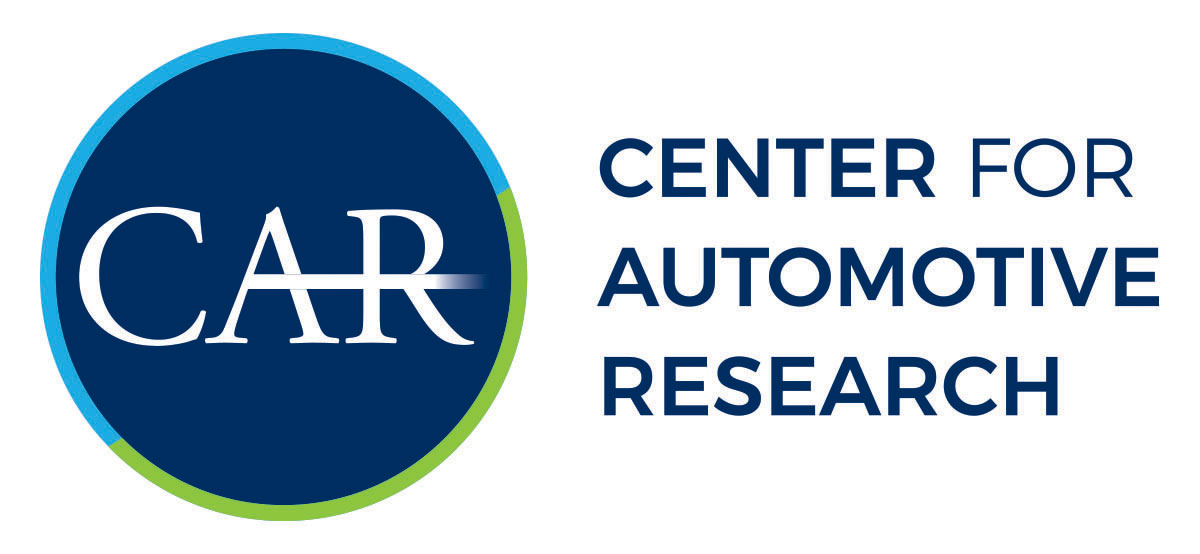Check out what CAR has been checking out! We asked some members of the Center for Automotive research team to share what they have been reading, watching, or listening to recently.

Tyler Harp
Industry Analyst
What Tyler is Checking Out:
Tyler’s Thoughts:
A working paper recently released by UC Berkeley’s Energy Institute at Haas highlights a correlation between political ideology and EV adoption in the US. Looking at an 11-year period, from 2012 to 2022, their findings suggest widespread EV adoption will be more difficult than previously thought – about half of EV sales are concentrated in the 10% most Democratic counties. EVs have become a partisan issue. This problem facing EV adoption prompted the formation of the EV Politics Project, started by a Republican campaign operative, which is dedicated to researching and overcoming the “Red State EV Curtain” problem and ending the partisan EV divide. Interestingly, despite the political divide in EV adoption, CAR Book of Deals data shows that nearly two-thirds of automakers announced investment tied to electrification during this same period (2012-2022) has been captured by states with Republican governors. The first operating NEVI-funded charging station was in Ohio, led by Republican Governor Mike DeWine. Republican Governor Brian Kemp is working to make Georgia the “electric mobility capital” of the US. It appears that while the left-leaning consumer is more favorable of EVs, Republican states are the first ones capitalizing on EV transition investment. This political divide poses one more hurdle to EV adoption, in addition to other consumer concerns like range anxiety and cost. Throw in the fact that it is an election year with the likely candidates firmly at odds on electric vehicles, this is an interesting space to watch.
Yen Chen
Principal Economist
What Yen is Checking Out:
Yen’s Thoughts:
China has established itself as the leading global motor vehicle exporter, with nearly five million units shipped last year according to the China Association of Automobile Manufacturers. A lesser-known fact is that a significant portion of Chinese vehicles exported to Mexico, the second-largest overseas market for Chinese vehicles by volume, bear the Chevrolet badge. Produced by GM’s Chinese joint venture partners, SAIC and Wuling, these “American-Chinese” vehicles surpassed 110,000 units in shipments to Mexico last year. Remarkably, they accounted for 15 percent of all imported vehicles in the Mexican market and secured an 8 percent share of the total Mexican light-duty vehicle market.
Cullen Smith
Industry Analyst
What Cullen is Checking Out:
Cullen’s Thoughts:
I have been writing a paper on the mobility sector’s intersection with tribal energy sovereignty & free prior and informed consent (FPIC) – two concepts that promote tribal nations’ right to self-determination on energy production, consumption, and their role in the current energy transition. The mobility sector’s intersection in the energy transition relies on and encourages the use of massive amounts of domestically available critical minerals, the majority of which are on or near tribal lands. This is why it is tremendously important to consider the ethical implications of a just energy transition in the context of the vast injustices inflicted on tribal peoples throughout history and into the present. Andrew Curley’s recent book, , helped me understand the complex interactions between tribal nations and energy production and consumption. As a member of the Navajo Nation, Curley explain show energy sovereignty (in this case through coal production and energy generation on the Navajo Nation’s lands) holds critical significance for the Navajo Nation – providing economic independence and labor opportunities to the tribe. However, Curley also documents the shifting dynamics within and outside of the tribe over this issue; for example, as factories dwindled and environmental concerns mounted, some members of the Navajo community supported continued investment in coal, while others sought to transition away from it. Those shifting dynamics were eye-opening for me to learn about and absorb within the context of the ongoing energy transition. It underscores the importance of ensuring that the mobility sector, like all other aspects of society, engages with this transition in just and equitable ways.What Snehasis is Checking Out:
Snehasis’ Thoughts
The higher EV adoption rate results in infrastructure challenges beyond the electrical grid. Safety concerns, vehicle optimization, and roadway funding models require attention to ensure a smooth transition. Specific dangers like EV fires also necessitate specialized training and equipment for first responders. At the same time, this provides a new economic growth opportunity for the nation to redo our infrastructure and look for innovative ways to smooth the transition. Creative new concepts to combine EVs and mobility solutions for infrastructure make it an exciting future.Get our feature stories straight to your inbox.
Join our email list today and never miss our feature stories, publications, and event news.



